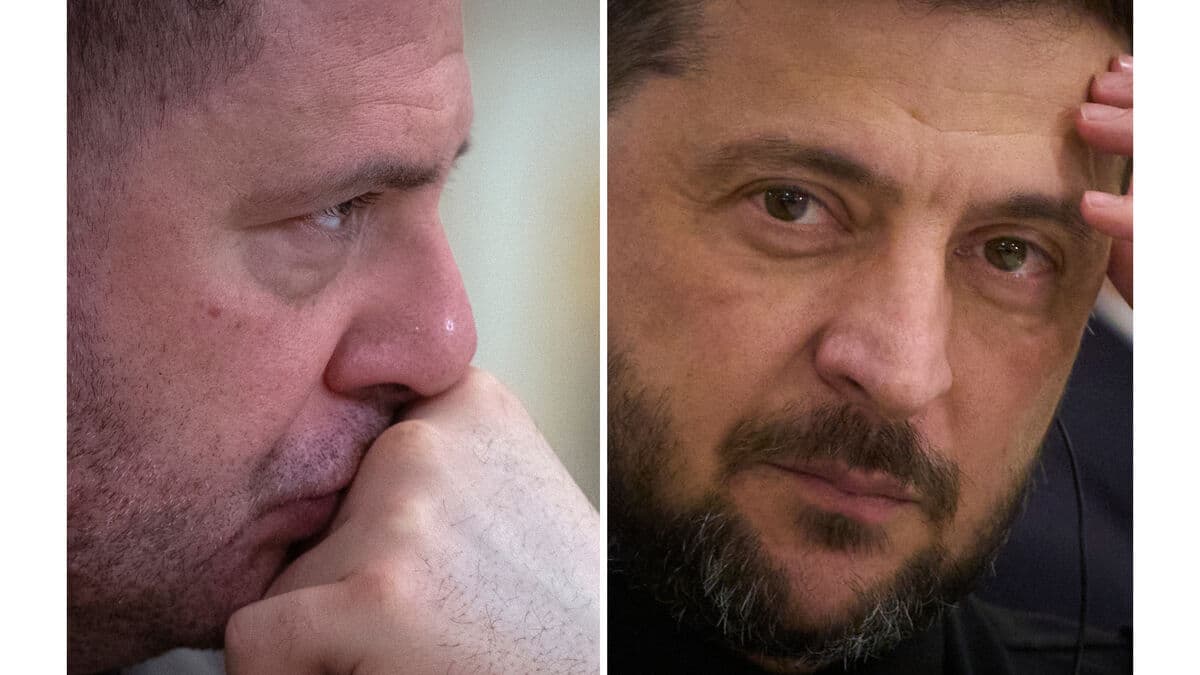The scandal in Kiev exploded last week. A 15-month investigation by Ukraine's anti-corruption agency Nabu revealed that the equivalent of around one billion kronor had passed through a money laundering scheme linked to the Ukrainian energy sector.
Both Justice Minister Herman Halushchenko and Energy Minister Svitlana Hrynchuk were forced from their posts.
Documents from the investigation show that those involved – codenamed “Professor”, “Carlson” and “Sugarman” – allegedly delivered large sums of cash packed in bags to recipients in Kiev, The Guardian reports . One of those involved is said to have sent his wife to collect wads of banknotes, money that she then hid in her car.
Want to see strong action
In addition to the dismissal of two ministers, a number of other high-ranking figures close to Zelensky have been sanctioned. One of them is the alleged mastermind behind the scandal, businessman Timur Mindich, who fled Ukraine just hours before Nabu was to raid his apartment. He is believed to be in Israel.
But the question is whether the sanctions and ministerial dismissals are enough to curb the discontent among Ukrainians. The fact that it concerns the energy sector is especially poignant because Russia's constant attacks on the electricity grid mean constant and widespread power outages throughout Ukraine.
Strong measures against corruption are also a cornerstone in the work to strengthen relations with the West, whose support is crucial both for the war and when it is time to negotiate an end to it.
“A grey eminence”
So far, no accusations have been made directly against either President Volodymyr Zelensky or his closest aide, Chief of Staff Andriy Yermak.
But with regard to the latter, voices – both among opposition politicians and the president's allies – have begun to be raised to poke fun at the man who is called a grey eminence by critics, and who some believe in practice functions as vice president.
The opposition claims that it is difficult to imagine that such a large-scale scandal could take place without Yermak, who has been one of the main players in Ukrainian politics for the past six years, knowing about it, writes AP. But no concrete evidence has been presented to prove that this is the case.
The skepticism toward Yermak is also evident among Zelensky's allies. In a Facebook post earlier this week, Anastasia Radina, chairwoman of parliament's anti-corruption committee and part of the president's coalition, wrote that Zelensky is "forcing an even worse internal crisis" by not cutting ties with his chief of staff, the AP reports.
Chief of Staff to Ukrainian President Volodymyr Zelensky.
Born in 1971 and raised in Kiev in the then Ukrainian Soviet Republic, to a Ukrainian father and a Russian mother from St. Petersburg. His father held a high-ranking position at the Soviet embassy in Kabul, Afghanistan, in the 1980s.
So far I haven't known any family.
Trained as a lawyer and has worked with copyright issues and in the entertainment industry. Producer of several films.
Appointed as an advisor to President Volodymyr Zelensky, whom he had known for many years before that, in 2019. The following year he became Chief of Staff and today also holds positions in Ukraine's highest military command and security agencies.
According to the AP news agency, Yermak has been on all of Zelensky's trips abroad since Russia's full-scale invasion in 2022 and has played a central role in relations with the United States and other Western countries.
At home, he is described as the president's gatekeeper and is considered to have had the final say on appointments to all top positions within the government, including ministerial posts.
Named one of the 100 most influential people in the world by Time magazine in 2024.






